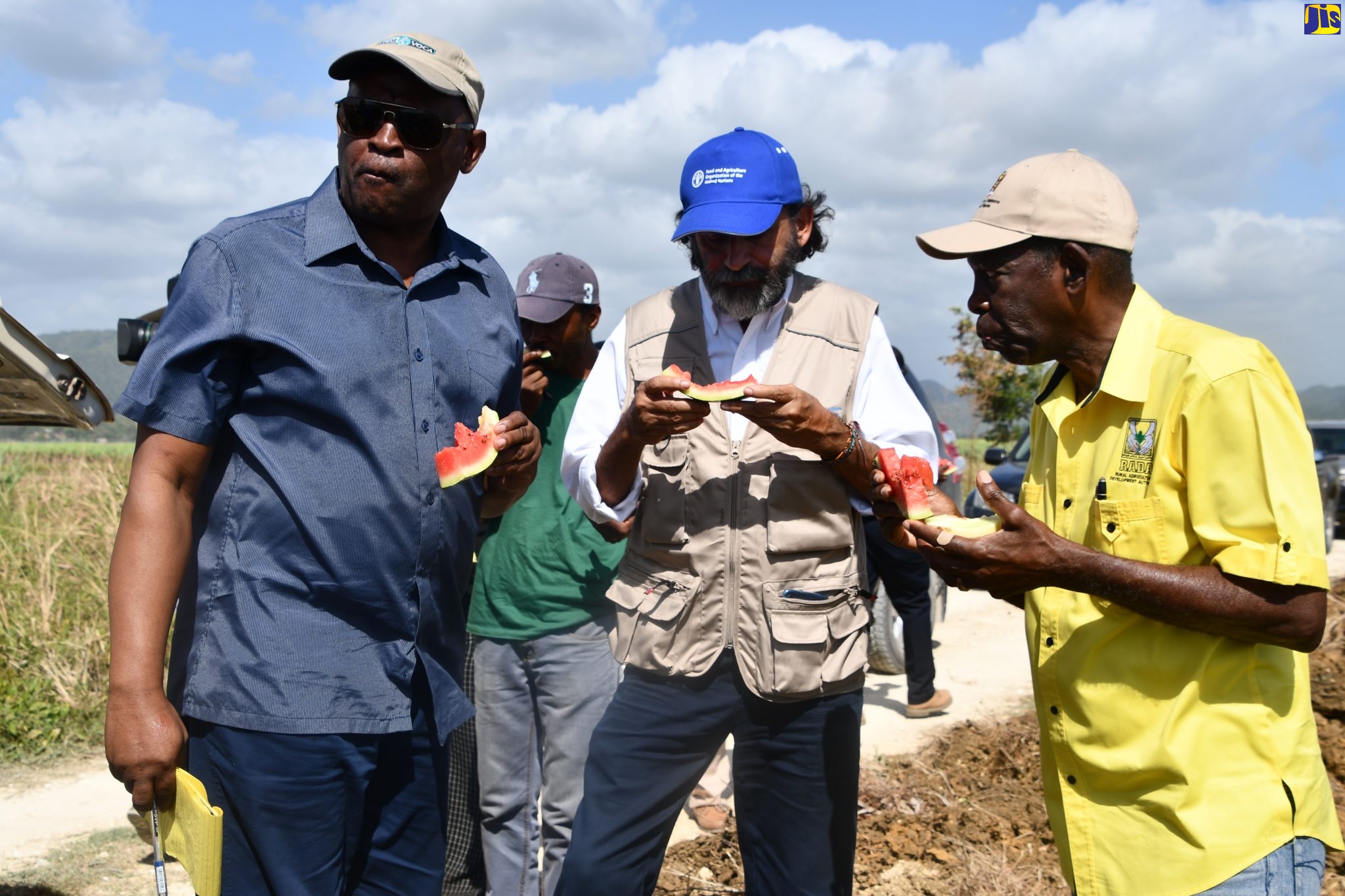Holland Estate Agro-Economic Zone To Transform Farming
By: , February 10, 2020The Key Point:
The Facts
- The 2,400-acre property will comprise farms as well as grading, packaging and processing facilities, which will provide opportunities for employment. There will also be a central area where farmers can sell their produce.
- Mr. Hutchinson, who was speaking to reporters following a tour of sections of the property on February 7, said the processing facility will “serve as a template as to how to reduce food waste in Jamaica”.
The Full Story
Minister without Portfolio in the Ministry of Industry, Commerce, Agriculture and Fisheries, Hon. J.C. Hutchinson, says the agro-economic zone being established at the Holland Estate in St. Elizabeth will ring in a new era for farming in Jamaica.
The 2,400-acre property will comprise farms as well as grading, packaging and processing facilities, which will provide opportunities for employment. There will also be a central area where farmers can sell their produce.
Mr. Hutchinson, who was speaking to reporters following a tour of sections of the property on February 7, said the processing facility will “serve as a template as to how to reduce food waste in Jamaica”.
He explained that produce, when reaped, will be graded, with the ‘A’ grade crops going to the hotels and export markets; the ‘B’ grade will go to the local market’ and the ‘C’ grade will be processed into juices, jams, jellies and other things.
Mr. Hutchinson said produce from the agro-economic zone will be utilised in the breakfast programme at schools throughout St. Elizabeth.
“We have a unique opportunity here. We have to ensure that our children get a proper breakfast in the morning. As we all know, breakfast is very important… probably the most important meal of the day. Without a proper breakfast you will find that by nine or 10: 00 a.m. the brain is not functioning properly and where our students are simply out of it,” the Minister noted.
“On top of that, you find most of them, when they come, the first thing they’re going to do is drink a bag juice. We have to move away from the bag juices… we have to give our kids food of substance,” he added.

